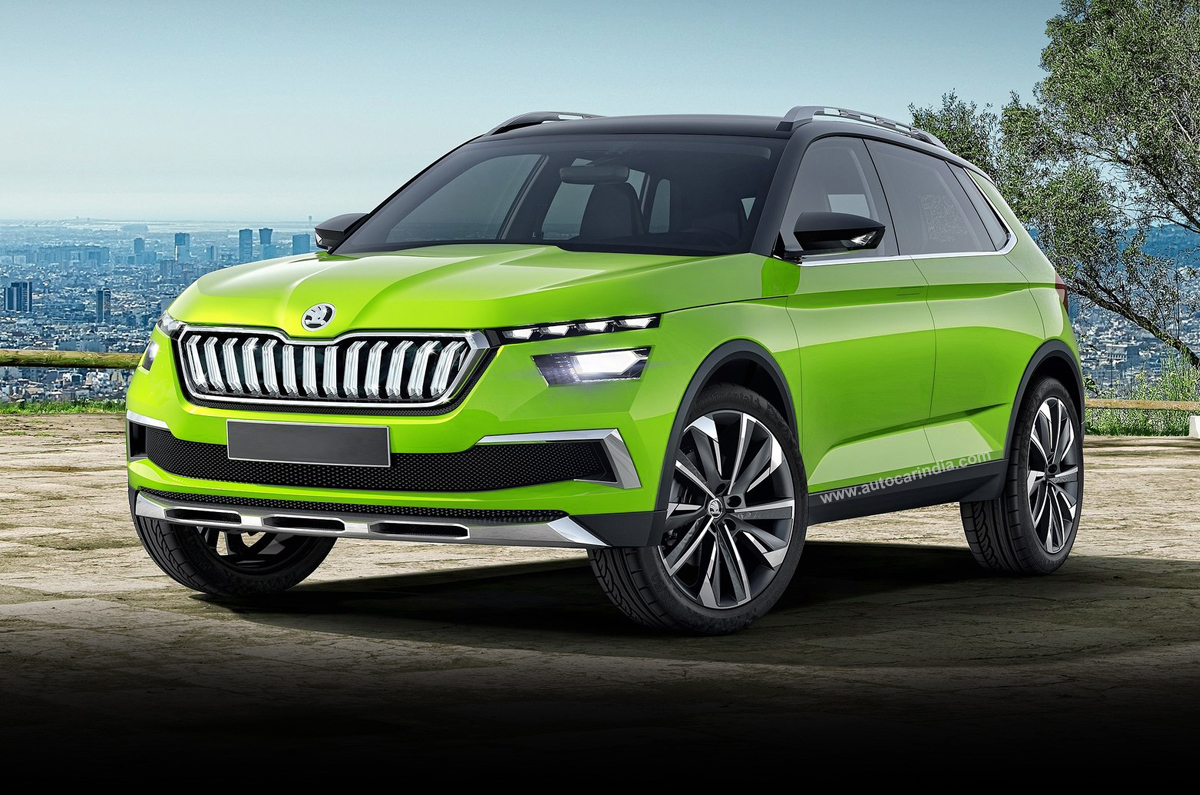
Having created a decent volume base in India with the Kushaq and Slavia – the two mainstream models from Skoda Auto that are a part of the Volkswagen Group’s indigenous ‘India 2.0’ project – the Czech carmaker is now set to announce its entry into the compact SUV segment here. The global management of Skoda is scheduled to travel to India later this month to announce the company’s plans and market expansion strategy.
The compact SUV project known internally as ‘India 2.5’ will be Skoda’s first sub-4-metre model since the Fabia, which was discontinued in 2013. The Skoda compact SUV will be a shortened sibling of the Kushaq and will be based on the same MQB-A0 (IN) platform which underpins the Slavia as well as the VW brand equivalents, the Taigun and Virtus.
The smaller Skoda SUV will enjoy the lower GST 28 percent slab, a tax benefit given to ‘small cars’ with a length under 4 metres and petrol engines less than 1.2 litres. Hence, it’s likely that the baby Skoda compact SUV will be powered only by the 110hp, 1-litre TSI and not the 1.5 TSI – the other engine option used in the ‘India 2.0’ cars from VW and Skoda.
Skoda’s compact SUV is expected to reach showrooms around March 2025, a good three years after the Slavia, the company’s last mass-market product. The long gap is due to challenges with the commercial feasibility of the ‘India 2.5’ project, which delayed the launch by almost a year. Approvals by Skoda’s global HQ took time and at one point, the project was even shelved but was revived following a change in Skoda’s management and a green light was finally given.
However, Skoda will go ahead with this project without VW, which will not have a similar compact SUV. The German brand’s strategy is to focus on EVs and hence it’s likely that the Virtus will be VW’s last mass produced ICE model in India. But, with the pace of electrification slowing down in key markets and the transition from EVs taking longer than expected, VW could have a change of heart and rethink its ICE strategy with its own version of this compact SUV further down the road from Skoda.
Without VW to share the cost of development and also volumes, finding economies of scale is the single biggest challenge for Skoda. However, the commonality of parts with the India 2.0 cars and a strong export focus promise to give Skoda the critical volumes and scale to ‘India 2.5’ viable.
The green signal for the India 2.5 project means Skoda Auto Volkswagen will infuse some fresh capital into to its India to expand operations, but according to a company source, there is still some left over amount of the USD 1 billion investment for ‘India 2.0’, which can be deployed for ‘India 2.5’.
Skoda Auto expects a potential annual volume of over 90,000 units to serve both the domestic and exports market of Skoda, which is trying to build its presence in Southeast Asia, Middle East, CIS and North Africa.
In India, this model will jump into a highly competitive market and battle with the likes of the Maruti Suzuki Brezza, Tata Nexon and Hyundai Venue. The compact SUV has become the biggest sub-segment of the fast-growing Indian passenger vehicle market and accounted for over 25 percent of the total industry volumes of over 1 million units at the end of 2023.



